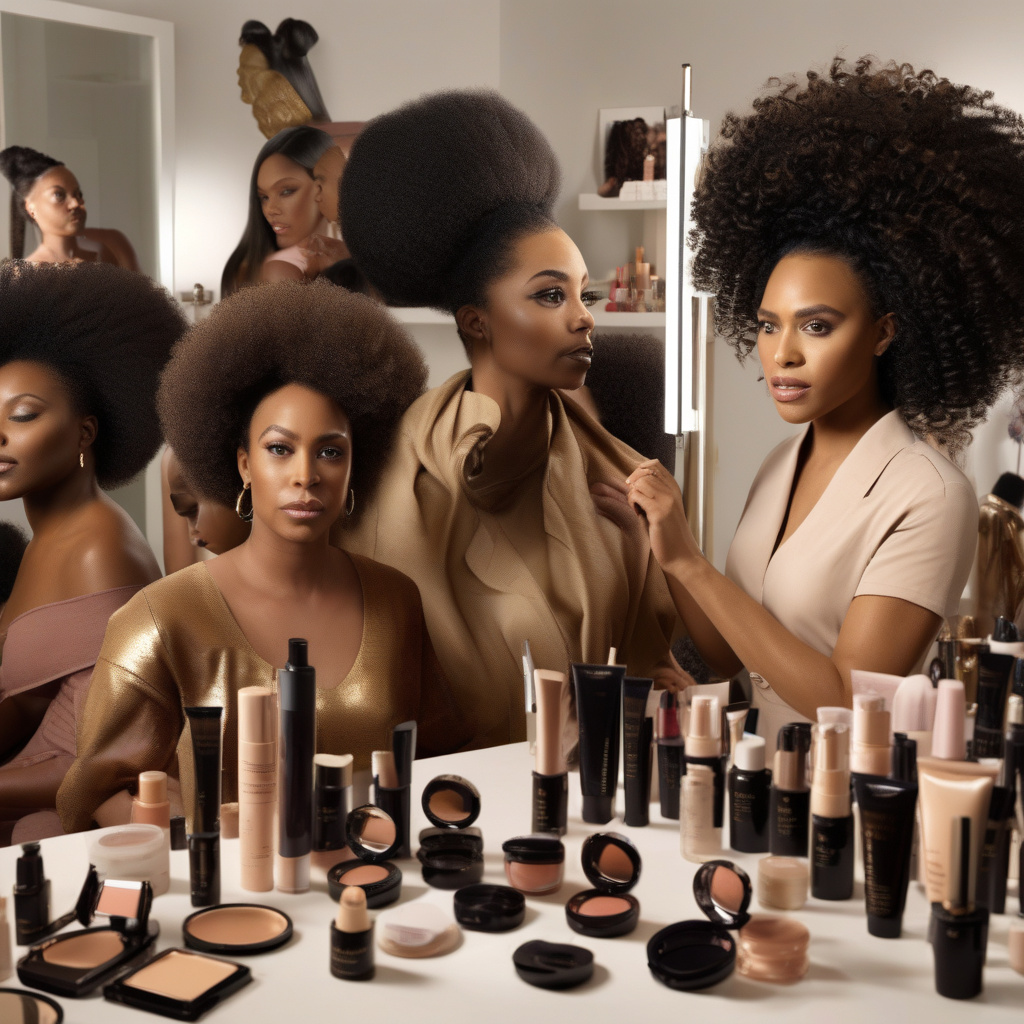Ami Colé Is a Sign of a Broken System for Black Beauty Founders
The beauty industry has seen its fair share of rise and fall stories, but the recent closure of Ami Colé stands out as a stark reminder of the systemic challenges faced by Black beauty founders. Founded by Diarrha N’Diaye-Mbaye, Ami Colé aimed to fill a significant gap in the market — creating clean, high-quality makeup designed specifically for melanin-rich skin tones. The brand garnered a loyal following and praise from beauty enthusiasts, yet its abrupt closure serves as a testament to a flawed system that continues to hinder the success of Black entrepreneurs in the beauty sector.
Ami Colé’s demise is not merely a tale of a failing business; it highlights the broader issues that plague Black-owned beauty brands. Despite the industry’s recent push for diversity and inclusion, the reality is that many Black founders still grapple with systemic barriers that limit their access to funding, resources, and market opportunities. Even with an aspirational and credentialed founder at the helm, the formulaic launch-and-scale playbook often fails to account for the unique challenges faced by these entrepreneurs.
The beauty industry has witnessed a surge of interest in Black-owned brands, particularly following the social movements of 2020. Investors and consumers alike showed a willingness to support businesses led by people of color. However, this newfound interest has not translated into sustainable success for all. Competing against established giants in the industry is a formidable task, and without adequate support, many Black founders find themselves at a disadvantage.
Ami Colé aimed to challenge the status quo by providing products that catered specifically to the needs of Black consumers, who have often been overlooked by mainstream beauty brands. The brand’s focus on clean beauty and authentic representation resonated with a demographic hungry for change. However, the closure of Ami Colé underscores that having a great product is not enough to ensure longevity in a market dominated by larger players with deeper pockets.
For many Black beauty founders, access to capital remains a significant hurdle. According to a report by the Kauffman Foundation, Black entrepreneurs receive only a fraction of venture capital funding compared to their white counterparts. This disparity limits their ability to scale operations, invest in marketing, and build a robust distribution network. Even with a strong concept and a passionate consumer base, a lack of financial resources can stifle growth and innovation.
Moreover, the beauty industry is heavily influenced by trends and consumer preferences that can shift rapidly. Brands that do not keep up with these changes risk losing relevance. While Ami Colé’s commitment to clean and inclusive beauty was commendable, the inability to pivot effectively in response to market demands may have contributed to its downfall. The importance of agility in business cannot be overstated, particularly in a sector where consumers are constantly seeking the next big thing.
The closure of Ami Colé also raises questions about the support systems available for Black beauty founders. While mentorship and networking opportunities exist, they are often insufficient to address the systemic issues at play. Brands led by Black founders frequently lack the same level of market visibility and endorsement as their white counterparts. The disparity in media coverage can significantly impact a brand’s growth trajectory, making it essential for industry stakeholders to actively promote diversity in their marketing efforts.
Furthermore, consumers play a crucial role in shaping the narrative around Black-owned beauty brands. While there is a growing movement to support these businesses, it is imperative for consumers to remain committed beyond the initial wave of interest. Sustainable support means not only purchasing products but also advocating for the brand’s mission, sharing their story, and encouraging others to do the same.
In conclusion, Ami Colé’s closure serves as a critical wake-up call for the beauty industry and its stakeholders. It emphasizes the need for a reevaluation of how Black beauty founders are supported and nurtured in a landscape that often prioritizes established brands over emerging ones. As the industry continues to evolve, it is crucial that systemic barriers are dismantled to create a more equitable playing field for all entrepreneurs. The beauty of diversity lies not only in representation but also in the opportunity for success, regardless of a founder’s background. It is time for the beauty industry to recognize and rectify its shortcomings, ensuring that the dreams of Black beauty founders do not remain mere aspirations but can flourish into sustainable realities.
#BlackBeautyFounders, #AmiCole, #EquityInBeauty, #DiversityInBusiness, #SupportBlackBusinesses
